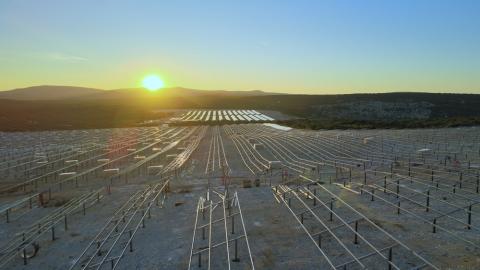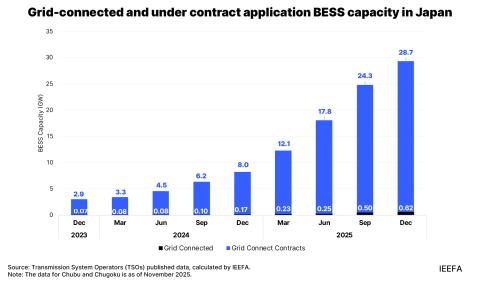IEEFA update: What constitutes a good power system in a period of transition?
Running a national power system for any country is immensely complex, and especially so for a big country such as Indonesia, an island archipelago with a large population and energy intensive industries.
In this presentation Melissa Brown, IEEFA Director of Energy Finance Studies, Asia, discusses Perusahaan Listrik Negara (PLN), Indonesia’s national electricity distributor. This is a summary of her online presentation to ECADIN, an energy knowledge-sharing platform based in Indonesia.
Today, utilities need to take full advantage of alternative sources of energy such as geothermal, rooftop and floating solar.
For many years power utilities burned coal and gas to supply baseload electricity, with none of the dynamic complexity that exists today, although conditions vary by country. Today, utilities are under pressure to produce clean electricity and need to take full advantage of alternative sources of energy such as geothermal heat, rooftop and floating solar installations, and wind turbines.
To understand how a country’s electricity system works, an analyst starts with a range of questions, the answers to which will provide an accurate view of the existing system and where it is likely to go in future.
For example, what are the country’s priorities, locally and nationally? How can planners and financial advisers ensure the energy capacity that the country develops is affordable and suited to its needs?
In light of such questions, how does an analyst see PLN?
As a state-owned enterprise, PLN has real financial strength—especially if it can call on concessionary borrowing and financing.
Indonesia is an energy growth market, with power demand growth slightly above GDP growth. PLN can expect an estimated power demand growth of 4.1% in 2020, with risk to the downside. The outlook for 2021 depends on the global effects of the coronavirus pandemic.
As a state-owned enterprise, PLN has real financial strength—especially if it can call on concessionary borrowing and financing. Operating expenses are favourable. Gas prices are soft, and PLN has had relief from state-owned energy companies PT Pertamina and PT Perusahaan Gas Negara Tbk (PGN). Any recovery in 2021 will not cause dynamic increases in coal or gas prices.
PLN has taken on aggressive expansion involving independent power producers (IPPs) to meet President Joko Widodo’s electrification goals. IPP contracts will oblige PLN to pay for all the generation capacity the IPPs install regardless of whether the capacity is used. Such fixed-price contracts mean that PLN’s operating losses before subsidy will almost inevitably grow significantly.
PLN’s tariffs are geared to affordability. The Government of Indonesia is expected to provide an extremely high level of support to PLN from general revenue. But with the dynamic growth of PLN’s commitments to IPPs, will the government be completely able to stand by PLN, or will it require policy adjustments so that Indonesia can work its way through this period of stabilisation?
PLN, like many power companies in the region, relies extensively on U.S. dollar bond financing. The good news is Indonesia is an investment-grade borrower: PLN has had consistent, steady, access to the global bond market.
Because of PLN’s reliance on foreign funding it must be able to manage foreign exchange risk to honour its commitments to IPPs and bondholders, and that is stressful during periods of elevated currency volatility.
PLN should cut expenses, defer unneeded IPPs and delay payments to manage cash. It’s only logical that any planned but unfinanced IPPs that will add to over-capacity in the Java-Bali grid or require significant new grid spend be reconsidered. The World Bank playbook also recommends taking these steps:
- Manage peak demand
- Incentivise energy efficiency
- Work for low-cost grid enhancements.
Watch the video: Penguatan Stabilitas Keuangan Sektor Ketenagalistrikan (English and Bahasa Indonesian)
Melissa Brown is IEEFA’s Director of Energy Finance Studies, Asia.
Related links:
IEEFA Indonesia: Playing with matches—Who should take responsibility for PLN’s financial mess?
IEEFA Indonesia: PLN in crisis—time for independent power producers to share the burden















